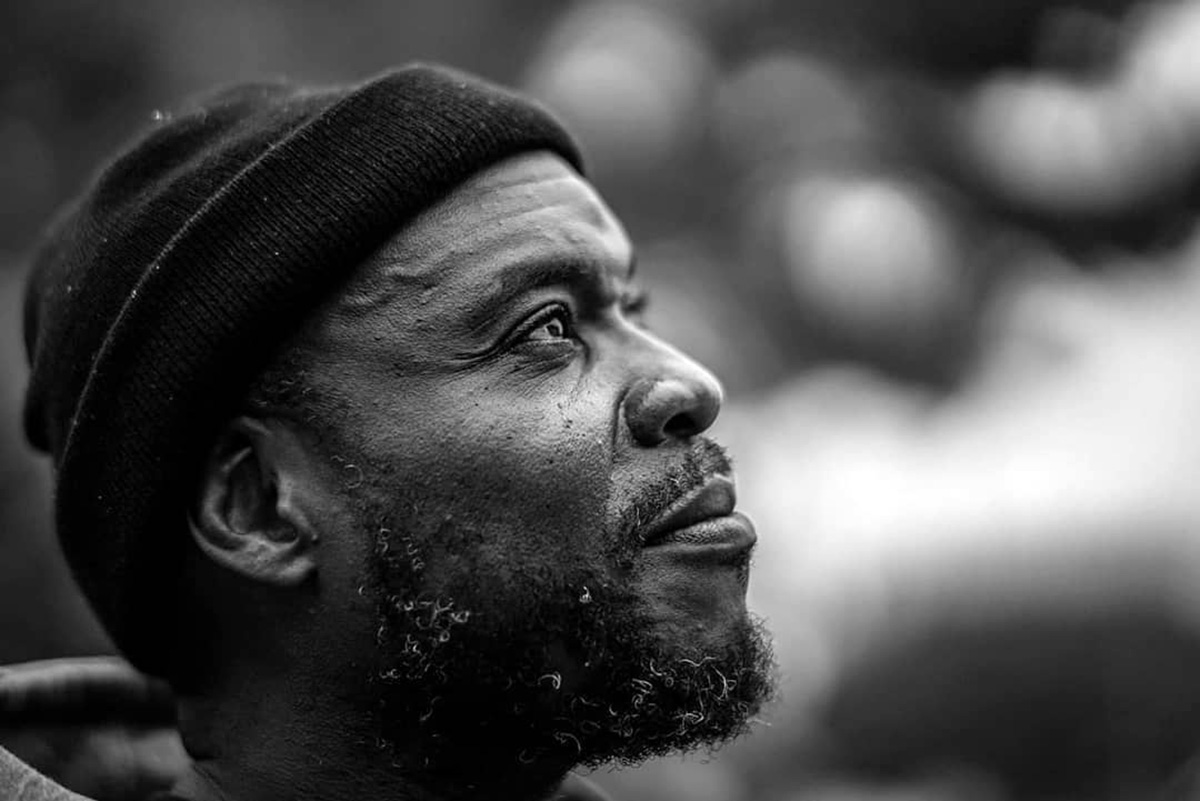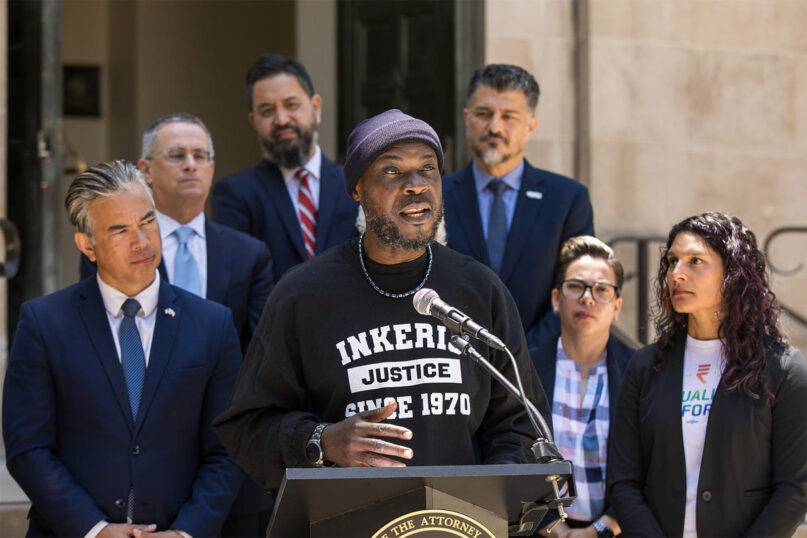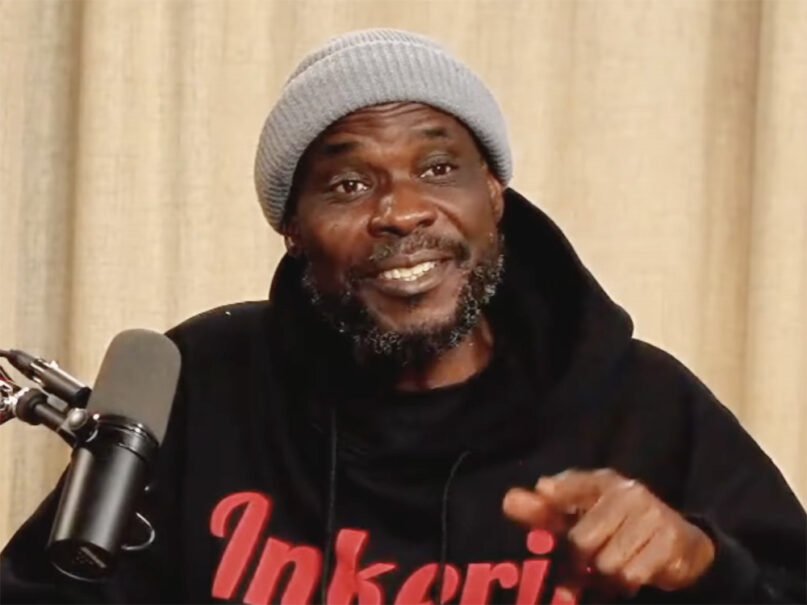
(RNS) — If there was one thing that Los Angeles-based community organizer and faith activist Umar Hakim-Dey was known for, it was his ability to operate from a deep generosity.
His sudden death at age 55 in September has left scores of Muslim, Black, and interfaith leaders as well as anti-poverty and social justice activists and their constituents in neighborhoods across Southern California mourning his loss. Hakim-Dey dedicated his life to empowering and uplifting people, advocating for marginalized voices and connecting everyone across his broad network in pursuit of justice, equity and dignity.
His wasn’t a widely known name, but in the West Coast communities he served, the loss is immeasurable. He was a living embodiment of Muslim teaching regarding charitable deeds: give back and help others in such a manner that the left hand doesn’t know what the right hand is doing.
Having grown up in Compton, the racially diverse, once crime-plagued city south of Los Angeles, Hakim-Dey reverted to the Islam of his childhood as a young adult. Imam Saadiq Saafir, the leader of South L.A.’s Masjid Ibadillah and a founder of ILM Foundation, became a lifelong friend and mentor. Hakim-Dey worked with the masjid’s Islah LA, a community restoration initiative “rooted in the Islamic principles of social justice.”
He would eventually come to head ILM, and in 2012 founded his own nonprofit, Inkerij (pronounced “encourage”), a “social enterprise helping purpose-driven individuals and organizations build their capacity.” He also served as board chair for LA Voice, a multi-faith, multiracial community organization working for citizenship rights, rehabilitation of justice systems, affordable housing and voting rights.

Umar Hakim-Dey speaks about hate crimes in Los Angeles in 2023. (Photo courtesy of Inkerij)
His death, which came a few days after the shooting death of Turning Point USA founder Charlie Kirk on a Utah college campus, didn’t receive anywhere near the same kind of national attention. But anyone who existed even briefly in Hakim-Dey’s orbit knew the far-reaching impact of his work and his gentle influence as a human.
Brie Loskota, a public academic and researcher focusing on the role of religion in America, said, “To know Umar was to be blessed to be in the company of a rare individual who knew how to go fast and together at the same time.”
I got to know Hakim-Dey when I was the Muslim editor at the multi-faith media site Patheos. I recruited him to be a blogger, and in the few years we worked together, I grew to admire his generosity and his humanity, as well as the deep Muslim values he cherished, wanting for everyone what he wanted for himself.
His daughter, Aneesa Reynolds, and others who worked closely with him explained how Hakim-Dey’s childhood in Compton instilled in him the importance of listening and speaking carefully, with full attention and intention.
“That’s kind of something that I’ve always picked up from him, that no matter who you’re talking to, make that person feel that they have your whole full-fledged attention,” said Reynolds. “It’s not about only being present, but actively engaging. His experiences of growing in life and growing in Compton and seeing certain things created empathy.”
For decades Hakim-Dey took any opportunity he could to join organizations as a fellow or an intern to learn best practices in leadership and community building. From gang intervention work to affordable housing and engaging with the unhoused to running ILM’s annual Humanitarian Day, Hakim-Dey lived by the motto of kindness as a value, not a strategy.

Umar Hakim-Dey records an episode of “In Living Grey.” (Video screen grab)
“It’s a subtle difference,” Loskota told me, “but so materially important. It’s the essence of what made him so different. There are people who will use their cause as a proxy for their personality or as a rallying cry. Or they’ll gather people beneath them as social capital. Umar was not that.
“He always thanked people who had helped him in his work, like it was a win for him. Every time he won, it was because we all won. The way he built the path of progress was by collecting the bricks of everything everyone contributed and laying them out. And when the path was smooth, he’d go back to everyone and show them their bricks — you did this,” Loskota said. “To operate from that deep level of generosity is so profound.”
Reynolds recalled that even when he had nothing, he gave to his communities. “There was a blessing in his time. My dad may not have been the richest, but he was wealthy in terms of knowledge and blessing.”
LA Voice’s executive director, the Rev. Zachary Hoover, met Hakim-Dey when he was a budding community organizer, working for the Community Organizing Residency. “It was his first real exposure to the discipline of community organizing the way we did it, with each new organizer having to do 20 one-to-one meetings per week,” Hoover recalled, teaching that “power is the product of relationships. He learned that principle, but he already had it in him intuitively as a human.”
Nurturing and elevating the public power of Muslim communities mattered to Hakim-Dey, Hoover recalled. “He spent a lot of time with African American communities, but also with Muslim communities. It wasn’t either-or for him,” Hoover said. “He also really loved his faith. He loved God, and he cared about justice.”
Hoover recalled how Hakim-Dey often quoted a verse from the Quran’s Surah Ar-Rahman: “ … so establish weight with justice and fall not short in the balance.”
Hakim-Dey would also remind Hoover of an oft-quoted Muslim teaching about fighting injustice and evil: “Do something about injustice. If you can’t, speak out against injustice. But if you can’t, condemn injustice in your heart, but that is the weakest of faith.”
“Umar would say, “But that’s ok. It’s still faith.”
(Dilshad D. Ali is a freelance journalist. The views expressed in this commentary do not necessarily reflect those of RNS.)
